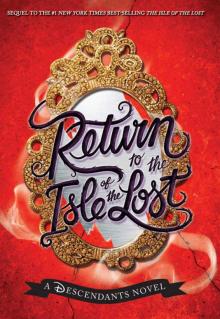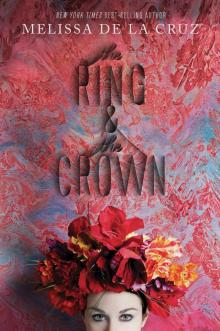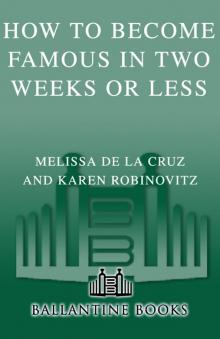- Home
- Melissa de la Cruz
Alex and Eliza--A Love Story Page 3
Alex and Eliza--A Love Story Read online
Page 3
There were some who said the American states needed to replace King George III with their own monarch, and there were those who said Horatio Gates’s autocratic style lent itself to a throne. Alex’s missive would be less of an order, then, and more a request: one that would have to be delivered diplomatically but also persuasively. Success would bring Alex greater prestige—possibly even his own battlefield command, which he had been agitating for since the beginning of the war—while failure could condemn countless patriots to death. Alex relished the opportunity of putting the imperious General Gates in his place without the older man even knowing what was happening.
But just before he’d left Morristown, New Jersey, where the Continental army was wintering, General Washington had called him into his office and charged him with a second duty. The Continental Congress wanted someone to blame for the debacle at Ticonderoga. If the fort hadn’t fallen in July 1777, the Continental army might have pushed as far north as Québec and brought eastern Canada into the United States as the fourteenth state. Instead the army had been forced to spend the past year simply to get back to where they started. The congress wanted to make an example of someone. And General Schuyler had been the commander at the time of the defeat.
General Washington rubbed his eyes in fatigue. “It appears the good general has been caught in the crosshairs of his own command.”
Alex protested, saying General Schuyler wasn’t even at Ticonderoga when it fell: He had been farther north, preparing the invasion of Québec. And the troops defending the fort had been vastly outnumbered and taken by surprise as well. There was nothing shameful in their defeat. There was, rather, much to be praised in the way they had acquitted themselves against overwhelming odds.
“Indeed, sir, if I may,” Alex pleaded. “How to put it? Punishing General Schuyler for the defeat is akin to punishing a mule for being a born a mule, when its parents were a horse and an ass: Some things were simply meant to be.”
The comparison brought a slight but much-needed smile to General Washington’s face.
“If this were purely a military matter,” he said when Alex had finished, “you and I would be advocating the same position. But, alas, there are military matters and there are political matters, and when the latter taints the former, the waters grow muddy. I am afraid General Schuyler must fall on his sword, if not for the sake of the army, then for the sake of his country.”
Alex had traveled north to Albany with a heavy heart. The entire time he was arguing General Gates into submission, the pending confrontation with General Schuyler loomed in his mind. He had not yet met the New York patrician, but had heard only sterling descriptions of his character and his family—both his ancestors, whose pedigree was impeccable, and his descendants, which is to say, his children. His daughters were reputed to be each more beautiful and charming than the last. Perhaps one of them would look past his lack of pedigree and bring him the name and connections that had been denied him at birth by his feckless father. But it seemed unlikely, to say the least, that he would be wooing any of the daughters of a man whose head he was about to serve up on a platter.
Look on the bright side, he kept telling himself. Maybe this will be another hurricane . . .
THE HURRICANE OF 1772 had no name, but if it had, it would have been one of the Furies, those Greek goddesses whose only desire was destruction.
Alex also didn’t have a name.
He called himself Hamilton, but he could have just as easily called himself Faucette, his mother’s maiden name, or Lavien, the name of her first husband, because she’d never married his father. She never married his father because she was already married to another man, whom she had left before Alex’s birth and refused to talk about, just as she refused to speak about Alex’s father after he abandoned the family when Alex was nine.
That man, James Hamilton, was the fourth son of a Scottish laird who claimed that he’d given up the family manse—Kerelaw Castle was its grand name—to make his fortune in the New World. No one knew if his story was true, but his attempts to make money were well known throughout the wealthy Caribbean islands of St. Kitts and Nevis and St. Croix, as were as his absolute failures to do so. Indeed, the only thing James Hamilton was good at was disappearing. Just as he’d deserted his family in Scotland, he similarly left his children and their mother on St. Croix. Though Alex wrote to his father regularly and occasionally heard back from him, he never saw him again, and after his mother died, when Alex was eleven, he found himself truly alone in the world. He and his older brother had no relatives to take them in. James was fostered to one family, and Alex was sent to another. It wasn’t an adoption. It was servitude. Alex had to earn his keep by working in the family’s shipping office, but even that was tenuous. When Alex’s foster family decided to leave St. Croix, they left him behind to fend for himself. He was barely in his teens.
His intelligence had already made itself known in the small island community, however, and he continued to clerk at the docks. On the one hand, it was dull work: counting inventory and keeping track of changing commodities’ prices and calculating net profits and losses. On the other hand, it was fascinating. The great wooden ships, each as big as a plantation house, docked in the harbor with crews from all over the globe. West Africa . . . Lisbon . . . the Canary Islands . . . London . . . New York . . . New Orleans . . . Savannah. The sailors told stories of the wide world that made Alex realize how tiny and isolated St. Croix was and gave him his first yearning to see beyond it.
The stories were captivating, but their cargo was rather less appealing, for the great majority of the ships that docked in St. Croix were loaded with a single cargo:
Slaves.
By law, the freighters were required to “off-load” that portion of their cargo that hadn’t survived the long passage over the Atlantic before they docked in the harbor, which is to say, the shippers were supposed to throw the bodies of any kidnapped Africans who had died in the holds into the ocean before the ships sailed into St. Croix. But there were always one or two dead in the gaunt parade of people who were marched or, often, carried off the great, dark, foul-smelling ships. Those who had survived the harrowing three-month journey chained to a splintery, rat- and lice-infested berth had muscles so atrophied that they could barely stand, their flesh pocked with sores.
It was their eyes that haunted Alex most, because even though they didn’t speak his language and he didn’t speak theirs, he could still read the knowledge of their cruel and unjust fate written there. Each tick he checked in the category of “live cargo” filled him with shame, because each one represented the length and breadth of a human life. A few hundred pounds that would change hands in the slave market, a few years of life in the cane fields before their abused body finally gave out from exhaustion.
St. Croix was part of the enormously rich Antilles, an archipelago of islands, whose plantations shipped endless amounts of sugar to satisfy Europe’s sweet tooth, and consumed endless amounts of enslaved workers to grow and process the cane. Such was the demand for sugar that the small handful of islands, whose total area was smaller than that of New York or Massachusetts or Virginia, generated a hundred times more wealth than all the northern colonies combined. But all that wealth was generated at the cost of untold thousands of lives, each of which had had its total worth recorded in a single black check cursorily made by a white hand.
So, five years ago, when a hurricane had loomed out of the Atlantic like a great dark wall, its storm-force winds pushing twenty- and thirty-foot waves before it like a child’s hand splashing drops across a pond, there was a part of Alex that hoped the storm would sweep away the entire island and cleanse it of its terrible deeds. Buildings collapsed like playing-card houses, hundred-year-old trees were blown away like dandelion fluff, and the ten-foot-tall cane stalks disappeared beneath floods that swept in with the ferocity of a pouncing lion. When the winds and floods retreated, carnage as f
ar as the eye could see was left behind.
As a child of the Caribbean, Alex had weathered dozens of hurricanes, but this was like nothing he had ever seen or heard of. Struggling to make sense of the destruction, of the puniness of man’s desires against the fury of the natural world, he sketched out a description of the storm’s fury in a letter to his father. Before he mailed it, however, he showed it to Hugh Knox, his pastor, who had served as an intellectual mentor to Alex since his father’s desertion and his mother’s death. Alex had only been looking for an adult eye to make sure that he hadn’t misspelled any words, but, far from criticizing the letter or correcting any errors, Knox extolled its virtues and even asked Alex’s permission to publish a copy in the Royal Danish American Gazette, which carried news of the Caribbean to the wider world. Alex was flattered, and consented. Even then he wasn’t thinking of any benefit accruing to him from his missive. Yet, when Reverend Knox told him that a group of wealthy residents in the province of New York had been so impressed by his account that they’d taken up a collection to bring the young writer north so that he could further his education, Alex thought his pastor was toying with him. But the offer and, more to the point, the stipend and the first-class ticket were all real, and less than a month after the hurricane devastated St. Croix, Alex left the tropical islands of his youth for the cold northern lands. At the age of seventeen he saw snow for the very first time. It was as white as sugar and, to Alex, just as sweet.
The following years were a blur, as he enrolled in King’s College to pursue a career in the law and then dropped out of college to fight for the cause of independence. The patrons who sponsored his journey came from some of the northern colonies’ most respected families, above all, William Livingston, a scion of the great New York clan, who took Alex under his wing and, often, into his home. Livingston’s daughter Kitty was a beautiful, vivacious girl, fully aware of her good looks and good fortune, and unashamed to flaunt both. Though unspoken, Alex understood that Livingston’s patronage didn’t extend to bringing a nameless Caribbean immigrant into his own family. Like Alex, Livingston could trace his lineage back to the lesser line of a noble family, but unlike Alex’s father, Livingston had done his family proud and had no interest in diluting its blood with unknown stock. This was the New World, where men made their own names. Alex would have to make the name Hamilton carry its own weight, rather than ride on the coattails of the name Livingston.
It was from Kitty that Alex first heard the name Elizabeth Schuyler. The Livingston daughters and the Schuyler daughters were all acquainted (and even distantly related, as were most of the families of New York). Though Angelica and Peggy were temperamentally more similar to Kitty, she’d always been closer to Eliza—most likely because there is only room for one flirt in any group of girls, and Kitty occupied that spot with pride.
Kitty knew marrying poor, penniless Alex Hamilton was out of the question, but was more than happy to trade witty banter with him at table and dance quadrilles until four in the morning. But between dances Kitty sang the praises of her friend in distant Albany.
As he made his dreaded way to the grand Schuyler mansion, Alex remembered what Kitty had said, even as he had already forgotten Kitty herself.
“Eliza’s bookish, like you. She cares about fresh ideas. Independence. Democracy. Abolition, they say. I think she’d even marry a man with no name and no fortune, if he cared about the same ideas she did.”
Hmmm, thought Alex, a girl with a prestigious family name who might be open to marrying a man with no name of his own . . .
4
Small Pitchers and Big Ears
Stairs Behind the Landing
Albany, New York
November 1777
Eliza followed her sisters down the stairs to the ballroom, where the musicians were playing a popular Italian violin concerto. At this point, there were still more servants than guests in the upstairs ballroom, and those who had already arrived were too busy plying themselves with food and drink to notice her entrance. Nodding at a few familiar faces, Eliza wove through the room and made her way toward the staircase at the rear of the house. As she descended to the middle landing, the lamps fluttered in a sudden breeze and she felt a rush of cold air around her ankles: Someone was coming in the back door.
Assuming it was a servant from the kitchens, she paused. She didn’t want her entry to be accompanied by a steaming mound of turnips or glistening side of beef. But instead of a servant appearing below, she saw dark coats—uniforms—and the murmur of deep voices. Her father was with a soldier.
“General Schuyler,” an unfamiliar voice said nervously, as a slender, square-shouldered young man came into view. His back was turned so Eliza could not see his face, but his voice was deep and sincere as it grew more concerned. “I must apologize again for being the bearer of such bad news. I want you to know that General Washington has nothing but the greatest respect for your military capabilities and even more for your character. But His Excellency must answer to all thirteen states now, and there are too many voices calling for a scapegoat for the loss of Ticonderoga.”
Eliza leaned over the banister a little more and saw her father next to the young man. If General Schuyler was stouter and shorter than his younger companion, his shoulders were just as square.
“There is no need for you to continue speaking, Colonel Hamilton,” her father said in a curt voice.
Colonel Hamilton! Eliza’s heart fluttered beneath her corset. Could it really be? She strained for a glimpse of her father’s companion but could see nothing beyond the powdered top of his head.
“I applaud you for having the courage to deliver news of my court-martial in person, rather than simply sending a letter. Nevertheless, I find your decision to visit on the night of my wife’s ball a little convenient.”
Court-martial! The phrase exploded in Eliza’s head like a cannon striking a buttress. Her father? It couldn’t be!
“Convenient, sir?” Colonel Hamilton said in a confused tone.
General Schuyler did not explain, although Eliza knew her father meant to cast aspersions toward the young soldier’s social aspirations for arriving at the Pastures on the night of an exclusive ball.
Her father sighed. “Still, you are a guest and, so I am told, a gentleman, and if I can surrender my own bedroom to General Burgoyne and his retinue for a month, I can certainly entertain a lackey of the Continental Congress for an evening. I would advise you not to stay too late, however. With so many of our men away at the war, the roads at night are not entirely safe.”
There was a hint of accusation in her father’s voice in the way he said “so many of our men away at the war,” but Eliza was still shocked by his use of the term court-martial. Could it be that her distinguished, honorable, irreproachable father was really going to be called before a military tribunal? It didn’t seem possible.
The top of Colonel Hamilton’s head bent forward in a respectful nod. “Of course, sir,” he said in an apologetic tone. “But, that is . . .”
“Yes, Colonel?” Her father had turned from Colonel Hamilton to gaze at his guests in the grand first-floor hall. Clearly, he was done with this unwanted visitor.
“Yes, sir. It’s just that, you see, the army didn’t arrange for an inn for me, and I myself am unfamiliar with Albany. I was rather hoping I could spend the night—”
“Here?” A chuckle burbled in General Schuyler’s voice. “Well, that is a pretty situation, isn’t it? I’m sorry to say”—in fact, he didn’t sound sorry at all—“we’re sleeping two to a bedroom as it is, and there’s no way we could accommodate you in the house.” He shrugged. “I’ll see if Rodger can find you something in the barn.”
He turned then and strode toward the front hall. Eliza quickly stepped back to avoid being seen, but as she did, one of her slippers brushed against the banister spindle and an embroidered bead popped off, bouncing onto the floor belo
w.
The powdered head turned and tilted upward. A lean face, impossibly young, looked up at hers. It was a sharp face, with a wolf’s sly intelligence. Long, straight nose, bright blue eyes. The most uncanny feature, however, had to be the eyebrows. For some reason, Eliza had always thought Alexander Hamilton would be dark-haired, but he was in fact a ginger and one who seemed to have a perpetual look of mischief on his face, even now, after he had just had his own head served to him on a platter. The rumors were right: Alexander Hamilton was terribly handsome.
Having been seen, she drew herself erect, then made her way down the stairs as regally as she could. With each step, Colonel Hamilton’s face grew as red as his eyebrows, as he realized that she was a Schuyler daughter and that she’d overheard his exchange with her father.
“Colonel Hamilton,” she said, without looking him in the eye, and swept past him into the party.
5
Tomcat and Canary?
Schuyler Ballroom
Albany, New York
November 1777
After his rough treatment by General Schuyler at the back door of the mansion, and the dazzling apparition of the Schuyler daughter floating down the stairs, Alex skulked in the rear foyer for a few minutes so that it wouldn’t appear as if he were following her. He wondered who she was—was it Angelica, whom Kitty had said was the boldest of the daughters? Or Peggy, the prettiest? Or could it be Eliza herself, of whom Kitty had so often spoken? Whoever it was, the look she had given him cut him deeper than anything the general had said.
That wasn’t his only trouble at the moment. He didn’t usually affect a wig, but he’d put one on this morning. Not for the meeting with General Schuyler, but in anticipation of the ball tonight, news of which had been all over Albany since he arrived three days earlier. He had fiddled with the pins for ten minutes before giving up, and had spent the entire day with the distinct impression that his hair was on crooked. Plus it itched. Unfortunately, it was impossible to get a finger beneath the thick layer of hair without sending the hairpiece even more askew. But if he didn’t scratch his head soon he was going to end up ripping the thing off and pulling his own hair out of his head.

 Gates of Paradise
Gates of Paradise Someone to Love
Someone to Love Pride and Prejudice and Mistletoe
Pride and Prejudice and Mistletoe Serpent's Kiss
Serpent's Kiss The Au Pairs
The Au Pairs Wolf Pact
Wolf Pact Witches 101: A Witches of East End Primer
Witches 101: A Witches of East End Primer Jealous?
Jealous? Cat's Meow
Cat's Meow Misguided Angel
Misguided Angel Birthday Vicious
Birthday Vicious Return to the Isle of the Lost
Return to the Isle of the Lost Rise of the Isle of the Lost
Rise of the Isle of the Lost Angels on Sunset Boulevard
Angels on Sunset Boulevard Double Eclipse
Double Eclipse Blue Bloods
Blue Bloods The Ring and the Crown
The Ring and the Crown The Ashleys
The Ashleys Les vampires de Manhattan
Les vampires de Manhattan The Van Alen Legacy
The Van Alen Legacy Sun-Kissed
Sun-Kissed The Isle of the Lost
The Isle of the Lost Masquerade
Masquerade Witches of East End
Witches of East End Diary of the White Witch
Diary of the White Witch Crazy Hot
Crazy Hot Lost in Time
Lost in Time White Nights: A Vampires of Manhattan Novel
White Nights: A Vampires of Manhattan Novel Revelations
Revelations The Thirteenth Fairy
The Thirteenth Fairy The Birthday Girl
The Birthday Girl Lip Gloss Jungle
Lip Gloss Jungle Fresh Off the Boat
Fresh Off the Boat Something in Between
Something in Between Winds of Salem
Winds of Salem The Queen's Assassin
The Queen's Assassin Love & War
Love & War Social Order
Social Order Skinny Dipping
Skinny Dipping 29 Dates
29 Dates Popularity Takeover
Popularity Takeover Escape from the Isle of the Lost
Escape from the Isle of the Lost Beach Lane
Beach Lane Bloody Valentine
Bloody Valentine All for One
All for One Wolf Pact: A Wolf Pact Novel
Wolf Pact: A Wolf Pact Novel The au pairs skinny-dipping
The au pairs skinny-dipping Lip Gloss Jungle (Ashleys)
Lip Gloss Jungle (Ashleys) Crazy Hot (Au Pairs)
Crazy Hot (Au Pairs) Because I Was a Girl
Because I Was a Girl Blue Bloods 6 - Lost in Time
Blue Bloods 6 - Lost in Time Sun-kissed (Au Pairs, The)
Sun-kissed (Au Pairs, The) Bloody Valentine bb-6
Bloody Valentine bb-6 Golden
Golden Lost in Time_A Blue Bloods Novella
Lost in Time_A Blue Bloods Novella Alex and Eliza--A Love Story
Alex and Eliza--A Love Story Blue Bloods: Keys to the Repository
Blue Bloods: Keys to the Repository Birthday Vicious (The Ashleys, Book 3)
Birthday Vicious (The Ashleys, Book 3) Keys to the Repository
Keys to the Repository Lost In Time (Blue Bloods Novel)
Lost In Time (Blue Bloods Novel) Stolen
Stolen Girls Who Like Boys Who Like Boys
Girls Who Like Boys Who Like Boys the au pairs crazy hot
the au pairs crazy hot Blue Bloods bb-1
Blue Bloods bb-1 Witches 101
Witches 101 How to Become Famous in Two Weeks or Less
How to Become Famous in Two Weeks or Less Frozen hod-1
Frozen hod-1 Jealous? (The Ashleys, Book 2)
Jealous? (The Ashleys, Book 2) Misguided Angel (Blue Bloods)
Misguided Angel (Blue Bloods) Winds of Salem: A Witches of East End Novel
Winds of Salem: A Witches of East End Novel The Gates of Paradise
The Gates of Paradise Beach Lane Collection
Beach Lane Collection Wolf Pact, The Complete Saga
Wolf Pact, The Complete Saga Gates of Paradise, The (Blue Bloods Novel)
Gates of Paradise, The (Blue Bloods Novel) Vampires of Manhattan
Vampires of Manhattan Isle of the Lost
Isle of the Lost Love & War_An Alex & Eliza Story
Love & War_An Alex & Eliza Story The Ashley Project
The Ashley Project Love & War--An Alex & Eliza Story
Love & War--An Alex & Eliza Story